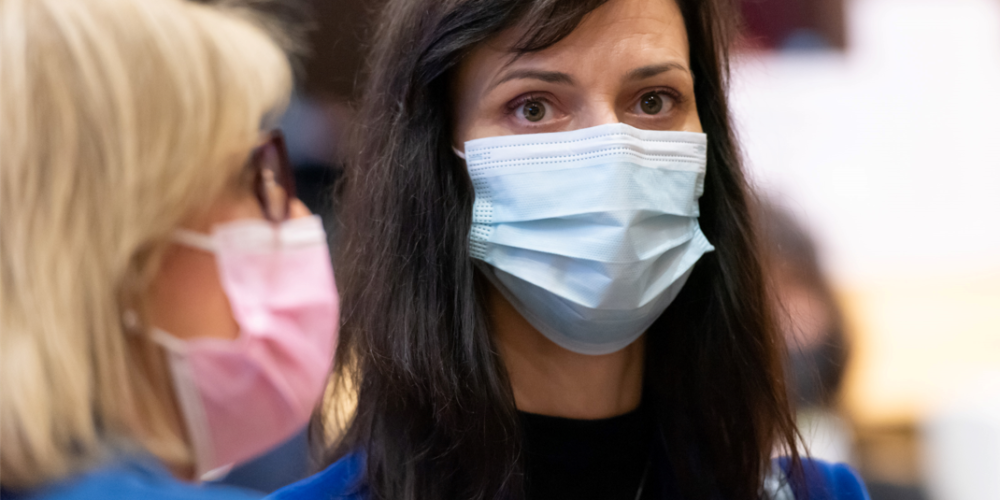

European Commission allocates €15.2m for Irish Higher Education Erasmus+ Support in 2022

Gerry O'Sullivan
Posted: 25 November, 2021
Ireland will receive just over €15.2m for Erasmus+ higher education mobilities and partnership co-operations in 2022. The details are contained in the launch of the European Commission’s annual Work Programme and Programme Guide for 2022.
The amounts are as follows:
| Key Action 1 - Mobilities | Key Action 2 - Co-operation Partnerships | Total |
|---|---|---|
| €14,027,874 | €1,240,482 | €15,268,356 |
| Application Deadline - 23 February 2022 (12.00 Brussels time) | Application Deadline - 23 March 2022 (12.00 Brussels time) |
With an increased budget of nearly €3.9 billion for the next year, Erasmus+ will continue to provide opportunities for study periods abroad, traineeships, apprenticeships, and staff exchanges and cross border cooperation projects in different areas of education and training, youth and sport. In addition to the general call, the annual work programme also includes other actions to be launched separately, such as the European Universities initiative.
Vice-President for Promoting our European Way of Life, Margaritis Schinas, said: “The launch of the new 2022 Erasmus+ calls have a special resonance. 2022 will mark the 35 anniversary of the programme, but also the year dedicated to youth. Erasmus has been an unforgettable experience for many years, let 2022 be even more unforgettable! With this new Erasmus year, we hope to make the experience more inclusive and more far-reaching, for young people to learn and travel after many difficult months.”
The programme will continue to support young people and to encourage their participation in democratic life, contributing significantly to the objectives of the European Year of Youth 2022, which was announced in the State of the Union address in September 2021. The core activities of mobility and cooperation will also be strengthened in 2022.
The main novelties introduced in the calls are:
- Forward-looking projects: New large-scale projects will support high-quality and inclusive digital education and the adaptation of education and training systems to the green transition. These ambitious projects will benefit from a larger budget and will run for a minimum of three years. They aim to involve a mix of public and private organisations. The overall objective is to achieve innovative outcomes that can impact education on a European scale.
- More exchanges with third countries: Thanks to funds from EU’s external instruments, third countries will have the possibility to participate in targeted projects and exchanges, especially in the fields of vocational education and training, and sport.
- More inclusive DiscoverEU: DiscoverEU offers 18-year-olds the possibility to travel through Europe. Two application rounds take place every year to distribute free travel passes. As of 2022, specific rounds will be dedicated for organisations to help even more young people with fewer opportunities to participate in DiscoverEU. They will benefit from more targeted support and funding.
- Bringing the EU closer to schools: Learning about the objectives and the functioning of the European Union is an important part of promoting active citizenship and the common values of freedom, tolerance and non-discrimination. Jean Monnet Actions, promoting the education on the EU, will be rolled out to schools and pupils of all ages, both in general and vocational education with various activities, including study visits.
- Simpler financing of cooperation projects: Erasmus+ introduces the possibility for project beneficiaries in cooperation partnerships to apply for a lump sum for implementing their projects. This greatly reduces the administrative burden when applying, managing the project, and for the reporting tasks.
Any public or private body active in the fields of education, training, youth and sport can apply for funding, with the help of Erasmus+ national agencies based in all EU Member States and third countries associated to the programme, and the European Education and Culture Executive Agency.
Details on the specific actions and related application deadlines are available in the documents published on the dedicated website.
Background
The total budget available for Erasmus+ from 2021 to 2027 amounts to €26.2 billion, complemented with about €2.2 billion from EU’s external instruments. Erasmus+ mobility and cooperation projects support the green and digital transitions, while fostering active citizenship and greater participation in democratic life. Since the start of the Covid-19 pandemic, it also contributed to the resilience of education and training systems. Inclusion remains a core principle of the programme to allow more people to learn and participate in international projects but also to reach out to increasing numbers of people with fewer opportunities.
For More Information
Factsheet on the new Erasmus+ 2021-2027 programme

